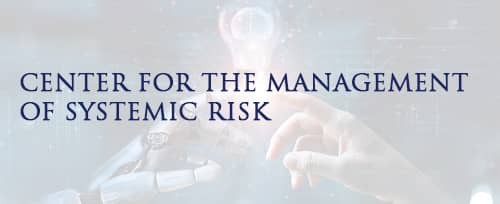Stochastic modeling and its primary computational tool, simulation, are both essential components of Operations Research that are built upon probability, statistics, and stochastic processes to study complex physical systems.
Such systems often take the form of a large-scale network of interconnected resources, such as the Internet, power/utility grids and other critical infrastructures, airline networks, global supply chains, hospitals and healthcare systems.
Key problems of interest include: how to take measurement, evaluate system performance, and manage resources; how to assess risk and implement hedging and mitigation strategies; how to make decisions that are often required to be real-time, adaptive, and decentralized; and how to conduct analysis and optimization that are effective and robust, including wherever necessary using approximations and asymptotics.
Basic tools and methodologies in this area closely interact and overlap with those in financial engineering, business analytics, machine learning, optimization, and computation.
IEOR faculty with research/teaching interests in this area regularly collaborate with colleagues in other engineering and science departments and Columbia Business School, and play an active role in the Data Science Institute.

















